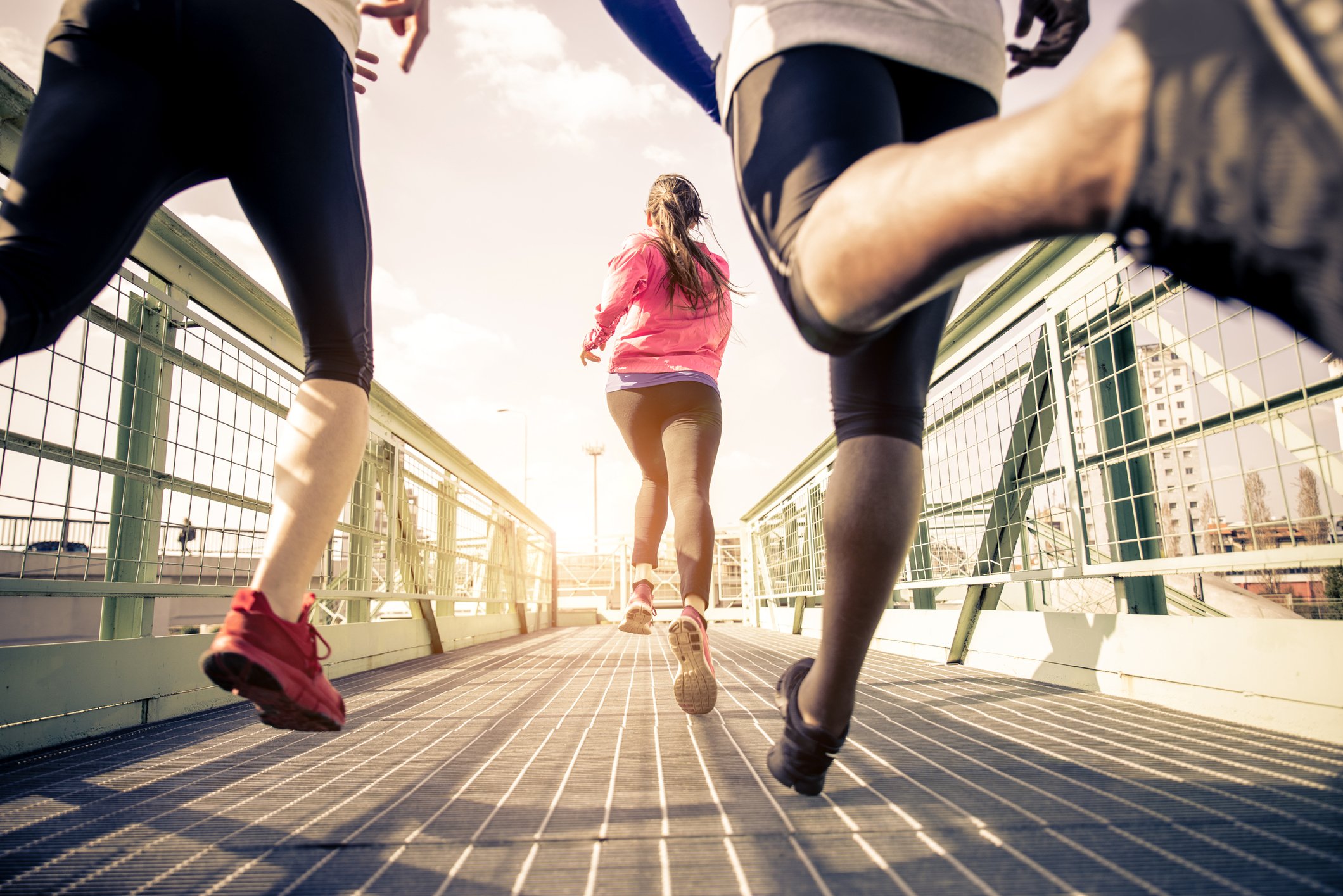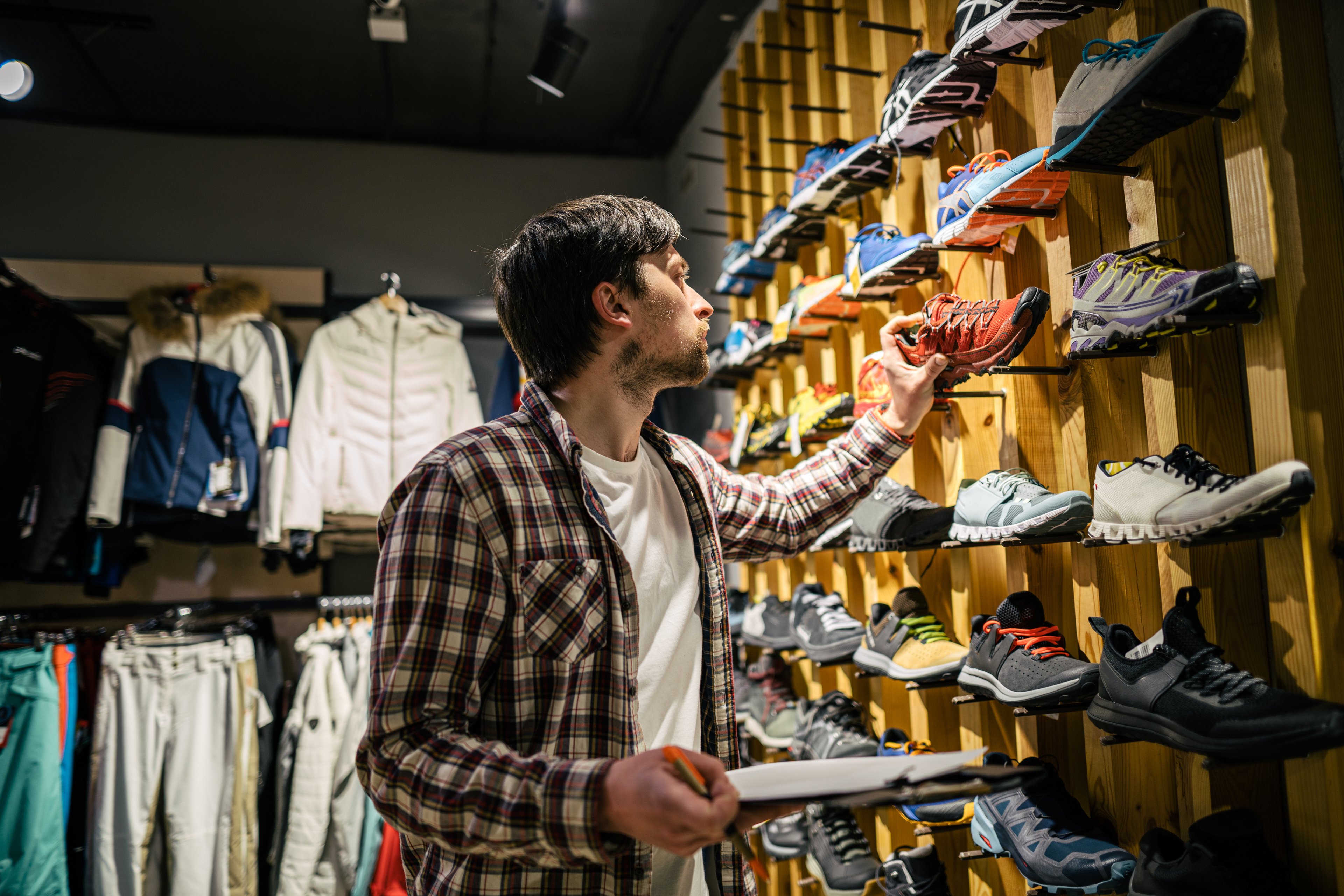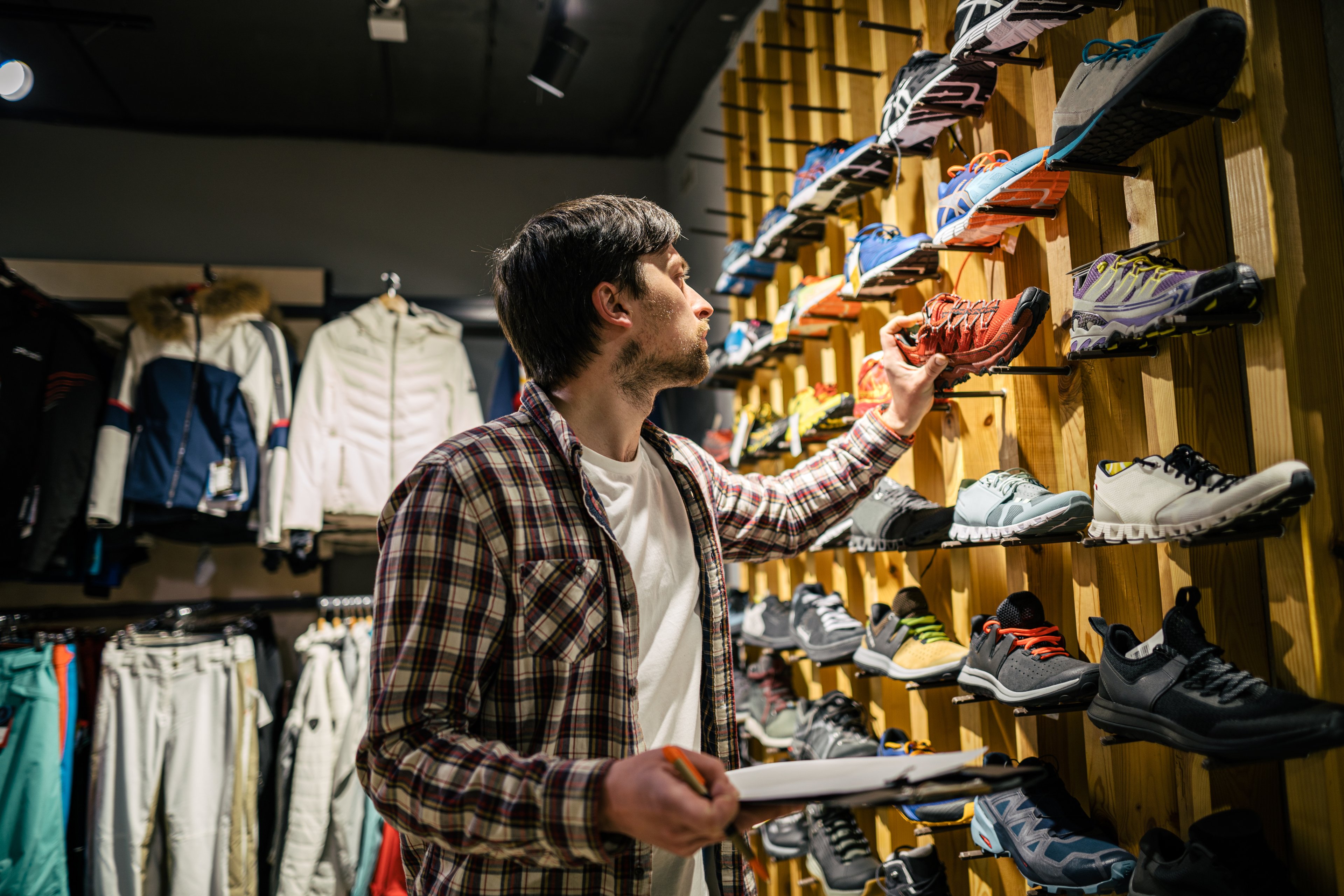It's a tempting pick to be sure. Athletic footwear and apparel retailer Foot Locker (FL +0.00%) looks like it will survive the coronavirus pandemic that's rattled -- and shuttered -- a slew of competing retailers. Once COVID-19 is in the rearview mirror, the 3,113-store chain could arguably be in an even better position than it was in before.
However, the fact of the matter is that Foot Locker was running into headwinds even before the coronavirus contagion took hold. Assuming consumers are even slightly more wary of visiting a mall or shopping center than they were as recently as late last year, this footwear icon just doesn't offer enough reward potential compared to its risks.

Image source: Getty Images.
All good things ...
Sports star-related branding was all the rage coming out of the 2008 recession, plugging Foot Locker into a cultural trend that lifted its top line a little more than it did for other retailers. That's always been a part of the business going back to the Air Jordan days of the 80s, of course. But basketball star Stephen Curry's 2013 mega-deal with athletic apparel brand Under Armour, followed by Kevin Durant's renewed (and similarly huge) endorsement deal with Nike in 2014, in some ways marked the peak of an endorsement frenzy. Foot Locker's revenue growth completely stalled by last year, even after rival athletic apparel and footwear retailers like Sports Authority and Finish Line closed many if not all of their doors.

Data source: Thomson Reuters/Refinitiv. Chart by author.
Brands are still dishing out big bucks to icons in their respective arenas to be sure, but the massive halo effect these celebrities can have on sales seems to have run its course.
One could argue that so many stars and brands were doing it that it was no longer exclusive or special to consumers. Others might say people eventually become numb to the same sort of marketing over and over again. Still, others may argue that consumers simply always long for new and different "trophies" of sorts. Most likely, it's a combination of all three.
The new norm isn't encouraging
Regardless of the reason, Foot Locker now finds itself on the downside of a sweeping, cyclical trend with no end in sight to the slide. The post-COVID environment is only going to exacerbate the challenge.
A McKinsey poll taken last month confirms what most individuals already suspect -- most consumers are in no hurry to get back to the mall, and the ones who are may not be ready (or able) to spend like they used to. One of Americans' biggest concerns right now regarding COVID-19 is the adverse effect it has had and will have on the economy. More than two-thirds of those consumers surveyed fear personal incomes will be crimped for at least two months -- most suspect incomes could be pressured for longer than that. That belief indirectly jibes with the results of a poll taken by PYMNTS indicating expectations that the pandemic will persist through October, on average.
Then, there's the less quantifiable and more permanent effect the coronavirus contagion is likely to have on consumer habits -- shoppers may forever be a bit more fearful of venturing into a crowded mall or store.
Foot Locker has a respectable e-commerce engine in place to serve those displaced consumers, but online, it must go toe-to-toe with behemoth Amazon as well as formidable direct-to-consumer operations from the aforementioned Nike and Adidas. The latter's e-commerce sales grew 34% last year, and its own direct-to-consumer revenue (which includes owned stores) now makes up one-third of its top line. Nike is crushing it with its own online sales effort too, doing well enough to sever its relationship with Amazon earlier this year.
One too many headaches
Were it just a fading sports shoe market or just a more competitive online arena or just the fallout from COVID-19, Foot Locker might be able to navigate its way back to daylight. That's not the case though. There are just one too many things standing in its way. That's not to suggest growth is impossible from here, but sustainable growth is going to be much easier for other retail names to come by to pick Foot Locker over them.











